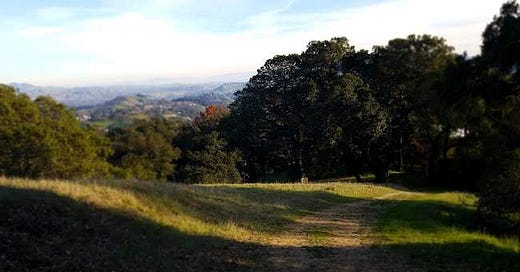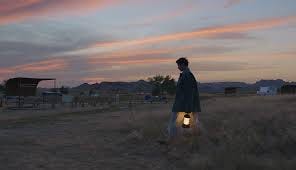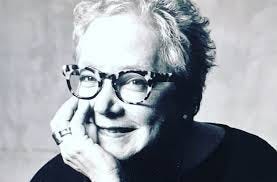This week: A reflection on something personal and reflective, like how my Instagram reminds me of old-school blogging. My Instagram is filled with artists, cooks, makers, and friends--but it’s the foodies who behave in ways that remind me of blogging back in the day, say 2003, when maybe only 10,000 of us, not 10,000,000, posted daily content online. (Note: I blogged steadily from 2003 to perhaps 2008, and then slowed down because of platforms like Twitter, thank you, social media!)
The extensive commenting done by the food writers/recipe developers I am following brings me right back to the old days, when Lisa Williams, Julie Leung, Amy Gahran, Elisa Camahort Page, Shireen Mitchell, Liz Henry, and Liza Sabater--and many others-- were part of my posse of women proving we could cook Sunday night supper for our families and be tech/media badasses, too. Those were also the days, I realize, when comments sections weren’t flooded by trolls.
Having self-reinforcing community energy seems to happen on Instagram now, as it did for bloggers in the old days. NYTimes food folks Vaughn Vreeland, Erin Jean McDowell, Emily Weinstein, among others, have lots of positivity on one another’s Insta Feeds; as do food writers I follow including Elizar Sontag, Hetty McKinnon, and Lukas Volger, to name a few more who cheer one another on.
And yet, after reading about the awful attack on Alicia Kennedy, and the Twitter storm that followed, I wonder how much all this linking is just relationship grooming; folks promoting one another to reinforce their own stature—and how much is true support? I am too far away from the invisible lines of tension in this world to discern the fine points of these dynamics, and yet, I know they are there. Because they have always been there, no matter what medium we’re using, no matter what year.
Bonus: 6 Insta accounts that bring delight
Alicia D Kennedy: A writer I read with delight and appreciation
Shutterbugs87: Photos for days
Salmon Creek Farm: I’d love to come back as a 35-year old hippie and live here
Michael C Twitty, The Cooking Gene
Creative Growth: Studio + Gallery for over 140 artists
Edel Rodriguez: Brilliant art, graphic design, commentary
READING WATCHING LISTENING DOING
Chloe Zhao, Nomadland, streaming on Hulu: Of course, we watched Nomadland the first night it streamed: Frances McDormand is one of the great talents of our age, and Chloe Zhao’s The Rider is one of my most favorite movies (and her first film, Songs My Brothers Taught Me, is also amazing.) Even better, I’d actually read Nomadland, the 2017 book by Jessica Bruder that was the basis for Zhao’s screenplay. But I had mixed feelings about the movie.
Of course, it’s brilliant; Zhao and her partner, cinematographer, and production designer Joshua James Richards have the ability to capture wide-open spaces, suggest deep feelings without words, and work with non-professional actors who may be playing versions of themselves. McDormand’s Fern, who has lost her home, her husband, and all past versions of her life, wordlessly conveys both suffering and hope; she will surely win many awards for this performance.
But in telling the story of Fern, I was disappointed that much of Bruder’s economic analysis was lost. Nomadland the book explains how the migrant lifestyle of these displaced retirees is linked to the lack of a living wage and the subprime mortgage disaster that led to so many people losing their homes. These larger factors are suggested in the movie, but it’s kind of as if one of the families portrayed in Evicted, Matthew Desmond’s book on Section 8 housing in Milwaukee, WI, became the subject of a film of that name. For folks who may not have read the book, no problem, but I found the lack of the larger economic context disappointing.
Nomadland has beautiful landscape and acting, but it feels like a Hollywood version of a painful American story. I can’t feel all good about a film in which all the older people forced to do demanding seasonal jobs, often at minimum wage or not much above, always are warm, fed, and have enough to eat--because, you know, they’re resilient and noble. (Gnashes teeth.)
Parting bits
Nature.com, Internet search patterns reveal the clinical course of COVID-19 disease progression and pandemic spread across 32 countries: The ways search behavior data reflects trends across the world is fascinating; this study analyzes queries for COVID-19 symptoms as the disease progresses and shows how the search queries track with the typical clinical course of the disease.
“ Internet search patterns revealed a clear temporal pattern of disease progression for COVID-19: Initial symptoms of fever, dry cough, sore throat, and chills were followed by shortness of breath an average of 5.22 days (3.30–7.14) after initial symptom onset, matching the clinical course reported in the medical literature... These data are available in real-time at a population scale, providing important benefits as a complementary resource for tracking pandemics, especially before widespread laboratory testing is available.”
Elissa Altman, The Measure of a Season: Elissa Altman’s writing is one of my newer pandemic discoveries, and her voice is giving me a lot of pleasure. The survivor of a difficult mother (I relate), and the author of Motherland, a memoir about that relationship (and so much more), Altman centers her reflections on food, family, aging, and place in a way I find compelling and authoritative. This essay, about the passing and marking of time during COVID, is beautiful, with observations including, “We made sourdoughs; our friends made babies.” Altman’s earlier essay, When the World Spins Backwards, is also beautiful.
Jaime S Wilson, Bon Appétit and Beyond, On food, media, and the difference between the two: This powerful essay is my first introduction to Wilson’s writing, and I am excited to continue to read their work. Wilson writes about starting a Substack newsletter:
“I started writing for myself. I did this because I could say what needed to be said, without contorting my opinions into pre-existing boxes or expectations. I could be entirely myself—unwaveringly queer and strong and independent—without the pressure of mainstream media outlets and the people who guard their gates. I could speak up for friends and coworkers who had been cast aside for years, unable to earn attention or respect from so many of those who claimed to speak for us.”
And “... traditional food media (and the people whom it employs) needs to step aside. They need to not only reflect on the experience of workers in the COVID crisis but to truly challenge the ethical standards and elitist narratives that have made up this business—and this world—for far too long.”
How are you doing? What’s keeping you inspired right now?
If you enjoyed #25, please share with someone who might like it, or share it online. And if you got this from a friend and would like to subscribe yourself, please do so here. #26 will happen next Sunday--and it is great to get comments back from you readers!
Thanks, Susan





